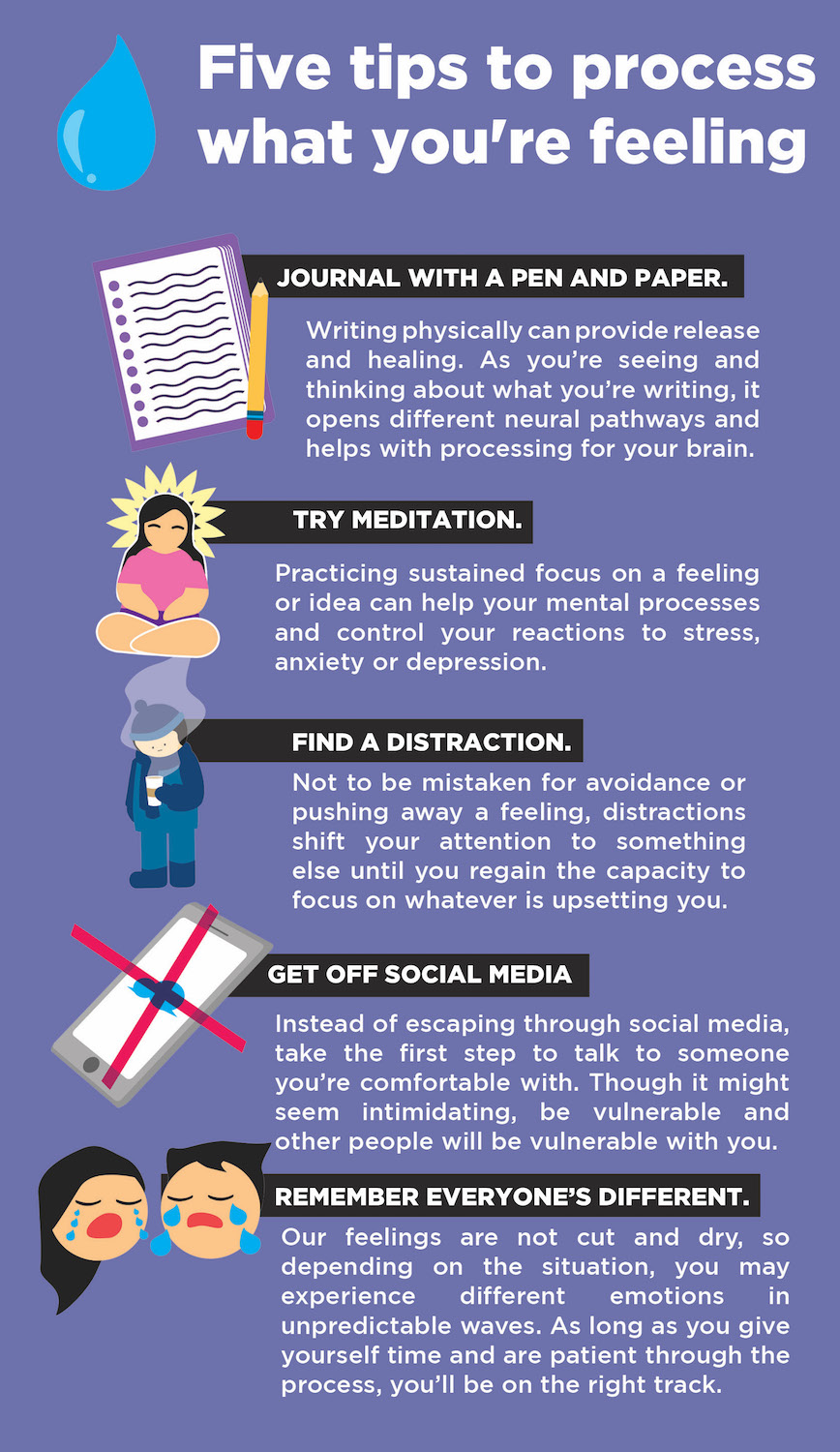Face your tears: How to uncover the benefits of crying in adulthood

Crying as an adult can feel like an unwanted reaction. But there are more pros than cons when dealt with the right way. Photo courtesy of Pixabay
By Andrea Wong, Contributor
From the moment we are born, we cry. During our earliest years, crying is a normal way to communicate our needs and deal with new or difficult emotions. As we grow older though, we often feel the need to hide our tears, similar to covering up an exposed wound.
By suppressing our emotions we may actually be robbing ourselves of the benefits it brings. According to an article by WebMD, crying can help regulate our mood and release stress by activating our parasympathetic nervous system and restoring the body to a state of balance.
Other studies suggest that it’s not simply the act of shedding tears that creates relief, but the social context that it occurs in and the reactions from others. For instance, we may feel better when we receive emotional support and understanding in response to our tears.
Giving ourselves space to cry is also a part of processing our emotions. Nadine Hynd, a registered psychologist at Calgary Counselling Centre, has worked with clients to help them become more aware of their emotions and build that familiarity into their daily routine.
“Once they understand what they’re feeling, we can start talking about the root issues and process through that, which then often comes naturally with crying because then there’s a release that happens,” says Hynd.
The opposite can also be true when we are met with disapproval or negative reactions, which causes us to avoid displays of emotion and the problems beneath it.
In Hynd’s experience, many of her clients will apologize for crying, a reaction that she says is largely due to guilt and shame.
“Our culture isn’t used to being vulnerable at all,” Hynd says. “There’s that whole perception of ‘I have to have everything together — have the American dream.’ So anytime I show any sort of vulnerability, it’s seen as a weakness.”
How suppressed tears can hurt you
Ryan Seggie, a peer support administrator at MRU, recalls a period when he was physically unable to cry because of issues with medication he was taking.
“I would get frustrated, like the anger that comes with not being able to have some sort of release,” says Seggie. “Just feeling like you’re getting really good at ignoring your emotions because you can’t cry anyway. That’s what scared me.”
Hynd compares holding back your emotions to concealing a zit. The more you cover it up, the more clogged it becomes and the bigger it gets. Similarly, when you prevent yourself from crying, it inhibits you from processing your emotions and can eventually lead to health risks like nervous breakdowns, panic attacks or depressive episodes.
Emotional awareness “affects pretty much everything,” says Hynd.
Humans have both the rational brain and the emotional brain, so when the emotional side is not engaged, it causes an imbalance with the other side. This disconnection affects our decision-making processes and makes it difficult to relate to others, which hurts our relationships and even our job performance.
Seggie says isolation is another result of suppressing our emotions, especially when standards of masculinity are involved.
“Men can’t talk about crying. Men can’t even talk about thinking about crying,” Seggie says.
“It’s that secrecy that creates the negative attitudes in society. If you’re not able to be vulnerable with yourself or anyone else … you’re not telling the truth in your daily life. And so essentially, you’re just going to feel really lonely when you refuse to let yourself cry.”

Crying as an adult can feel like an unwanted reaction. But there are more pros than cons when dealt with the right way. Graphic by Riggs Zyrille Vergara
Helping versus harmful crying
Crying in itself is a process, and it can either work for us or against us.
When crying allows us to understand what we’re feeling, it can provide a way for us to move forward. However, when we fixate on a sense of hopelessness, crying can make a situation worse.
“If you’re just staying in it, and you’re just dwelling and kind of brooding, the psychological term for it is ‘ruminating,’” says Hynd. “If I’m going over and over the same thing expecting a different result, and I’m stuck in a loop, it’s probably not a helpful thing that I’m in because I’ll just keep crying for no apparent reason.”
Seggie, who grew up as a “very sensitive” child, says he used to hate crying because he wouldn’t be able to control it. Now he finds that crying helps him recognize and work through the causes.
“Sometimes when I start crying, my reason is different at the beginning than it is at the end…It just kind of makes you more aware of what is actually upsetting you.”



